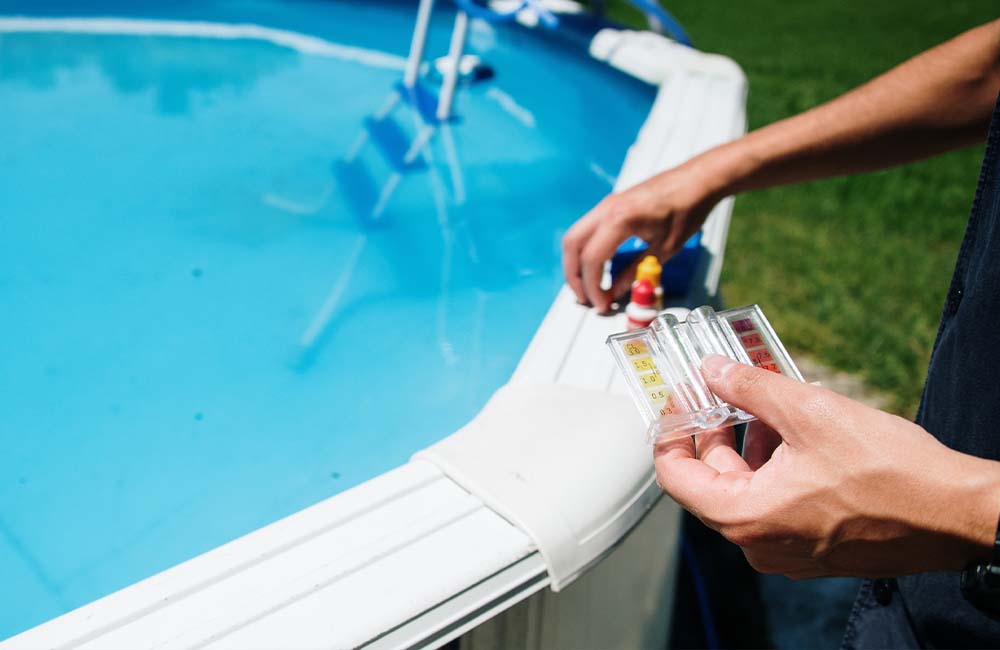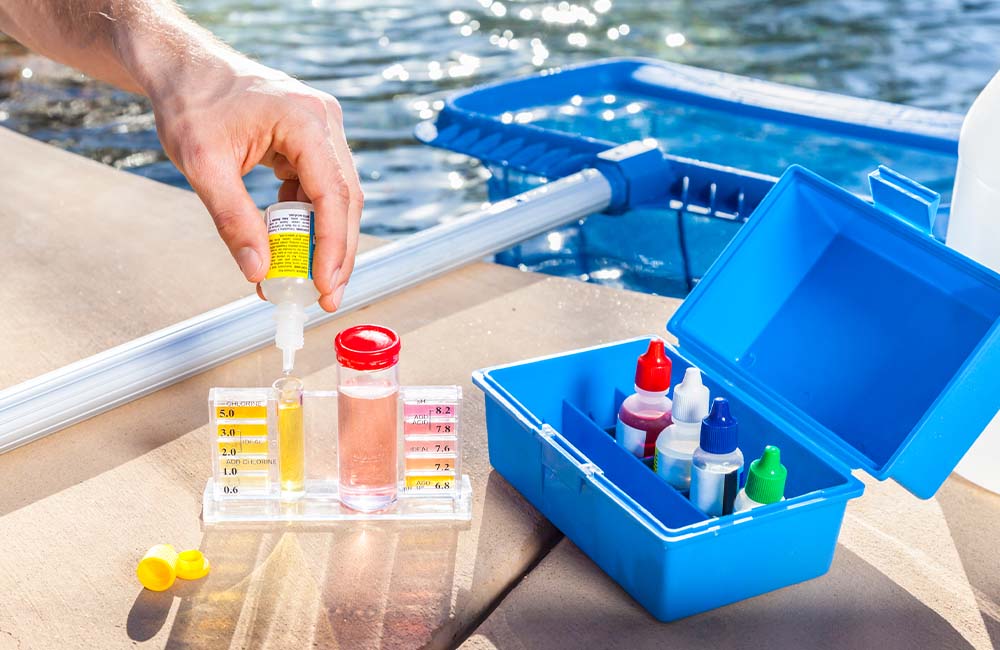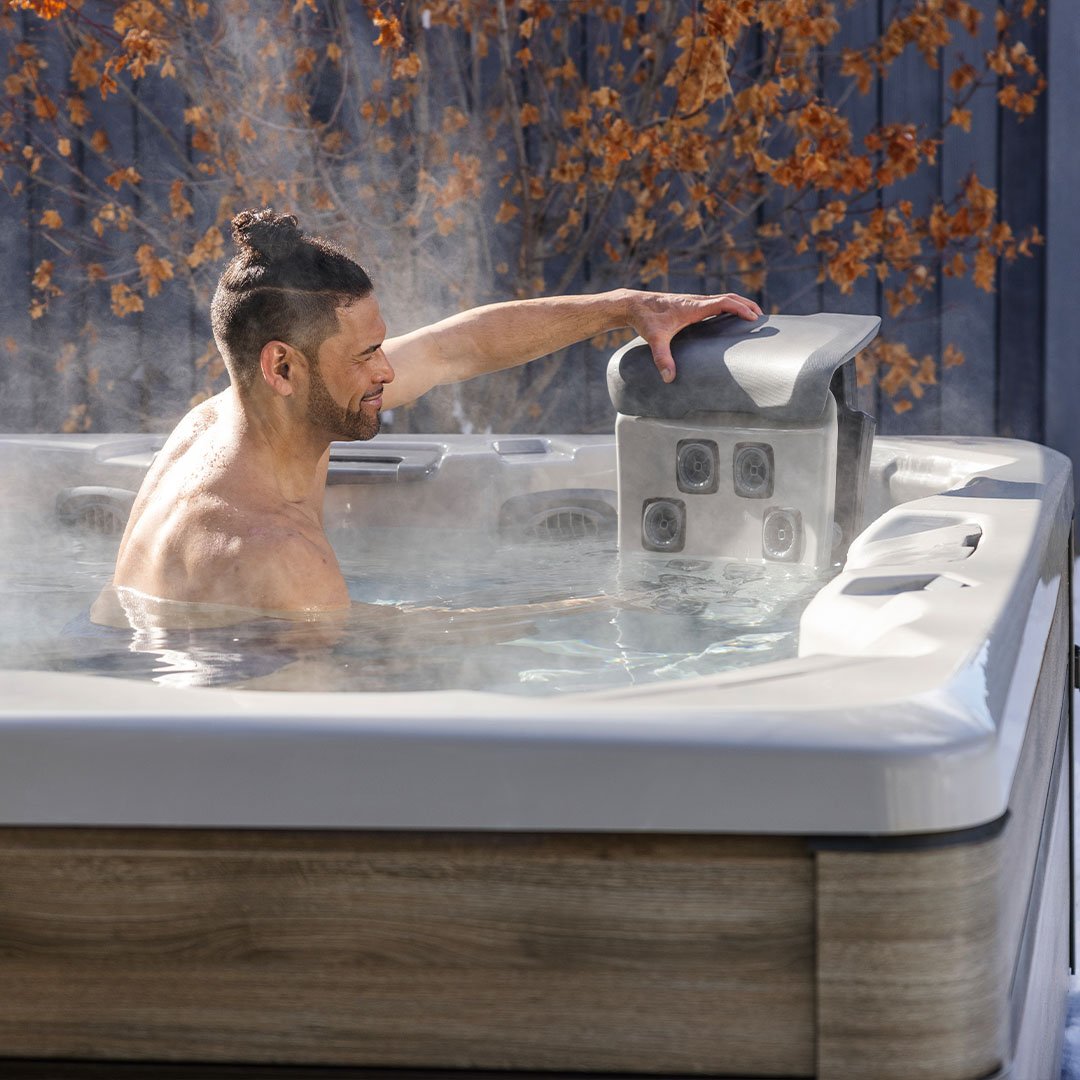Pool Water Testing Frequency: How Often Should I Test My Pool Water?
Figuring out how often to test your pool water is key to keeping it clean and safe. Most people think testing once a week is enough, but here at Watson's, we suggest a closer watch — aim for 2 to 3 times a week. Remember, the right number of tests might vary for different pools. This guide is all about why regular testing is important, what might change your testing schedule, and how to keep your pool in top shape. We'll help you answer the big question: 'How Often Should I Test My Pool Water?' and make sure your pool stays perfect for every splash.
How Often Should You Test Your Pool Water?
As noted in our introduction, testing 2-3 times per week is usually sufficient to keep everything in balance barring unusual events like the ones listed above. Under difficult circumstances, you may need to test your pool water multiple times a day for a while until you have it under control.
The frequency of testing can depend on several factors:
- Usage: Heavily used pools require more frequent testing.
- Weather Conditions: Factors like heavy rainfall, extreme temperatures, and intense sunlight can impact chemical balance.
- Pool Type: Chlorinated pools and saltwater pools might have different testing needs.
As a rule of thumb, here's a testing frequency guideline:
- pH and Chlorine: Test 2-3 times per week.
- Alkalinity: Once a week.
- Cyanuric Acid, Calcium Hardness, and Metals: Once a month or as needed.
Why testing pool water is important
The health of your pool water impacts everything from water clarity to swimmer safety. Regular testing helps in maintaining the perfect balance of chemicals, preventing problems before they arise. Let's break down the importance of monitoring each key element:
The main factors you need to be concerned with are:
- pH level - A measure of how acidic or basic your pool water is, based on the pH scale which runs from 0 to 14, with 7 being neutral (like pure water). The optimal pH level for your pool is around 7.4, or just slightly more basic than regular water. Any lower than that and the pool water can become corrosive, damaging the liner, fittings, and accessories. Much higher than that and it starts inhibiting what your chlorine can do.
- Alkalinity - A measure of the hydroxides, carbonates, and alkaline substances in the water. At the right level, these substances help keep your pH level more stable. You’re looking for a level somewhere between 80 and 120 ppm. If your total alkalinity gets too low, you’ll find it nearly impossible to maintain the right pH.
- Chlorine level - You know your pool water needs chlorine to keep it clean. But, it’s a delicate balance. Too little chlorine and you risk algae and bacteria buildup. Too much, and it’s not a pleasant swimming experience. When testing for chlorine, you’ll need to cover two figures: free chlorine, which is the amount of chlorine still available to clean the water, and total chlorine, which includes all the chlorine that’s been “combined” with contaminants and is no longer useful. The optimal level of free chlorine is 1 ppm, and if your combined chlorine (total chlorine - free chlorine) goes any higher than 0.3 ppm, you’ll need to “shock” the remove all those contaminants.
- Cyanuric acid level - This substance serves as a stabilizer to prevent sunlight from breaking down the chlorine too quickly. Without it, you’ll find it impossible to keep your chlorine levels balanced, and you’ll be spending a fortune on chlorine. An optimal CA level is between 30 and 50 ppm.
- Total Hardness: This measures the calcium and magnesium levels in your pool water. Too high, and you risk scale formation; too low, and your pool's surfaces could corrode.
A balanced pool is fresh, clean, and comfortable. It looks clear and inviting, smells pleasant, and feels great on the skin. On the other hand, pool water that’s out of balance can be cloudy, discolored, and smell bad. Even worse, it can be irritating to the skin and eyes, and can even make you sick.

How and when to do your pool water testing
Using a pool test kit regularly helps you make sure your water stays in that “sweet spot” where all the various pool chemicals are optimally balanced. When you test often, you can make small changes to the chemistry to keep the water clear and healthy. That way, you’ll spend less money and use fewer chemicals.
We also highly recommend testing anytime there’s a significant change to your pool water. This would involve anything that changes the volume of water in the pool or introduces more than the average contaminants. Some examples include:
- Heavy or lengthy rains
- Unusually hot weather
- Fertilizer, grass or leaves blow into the water
- Heavy usage of the pool (i.e. hosted a party)
Choosing the Right Pool Test Kit
A quality pool water test kit is essential.
The most useful type is one that tests for pH, chlorine, total alkalinity, hardness, and cyanuric acid levels, all at the same time. You can use either test strips or test solutions, though we recommend test strips for better reliability and longer shelf life.
If you choose to use test solutions, remember that they have a limited shelf life and lose their accuracy if exposed to sunlight and heat. Store them in a cool, dry area.
With several types of pool test kits available, it's important to select one that suits your needs. Test strips are user-friendly and offer a quick snapshot of your pool's health. Liquid test kits, while more complex, can provide greater accuracy. Digital testers, though more expensive, offer the most precise readings.
Advanced Pool Water Testing: Beyond the Basics
For those looking to dive deeper into pool chemistry, consider testing for:
- Phosphates: High levels can lead to algae growth.
- Salt Level: Essential for saltwater pools to ensure the proper operation of salt chlorine generators.
- Total Dissolved Solids (TDS): High TDS levels can reduce the effectiveness of chlorine.
Troubleshooting Common Pool Water Issues
Understanding how to adjust your pool's chemistry is key. Here are some common issues and solutions:
- Cloudy Water: Often a result of imbalanced pH or inadequate chlorine.
- Green Water: Usually indicates algae, requiring shock treatment and algaecide.
- Chlorine Odor and Irritation: Often due to high levels of chloramines, necessitating a shock treatment.
Professional Pool Maintenance: When to Call the Experts
While regular at-home testing is important, consider a professional pool service for a comprehensive checkup once or twice a year. They can handle complex issues and ensure your pool is in optimal condition.

In summary, regular testing is a cornerstone of healthy pool maintenance, but it's just one piece of the puzzle. To dive deeper into keeping your pool in pristine condition, explore our complete guide on pool chemical maintenance. Whether you're a new pool owner or looking to refine your pool care routine, our 'Above Ground Pool Chemicals Guide for New Owners' offers everything you need to know. Start mastering your pool's health today at Watson's Complete Pool Chemical Maintenance Guide.
FAQ'S
How Often Should You Shock Your Pool?
- Answer: The frequency of shocking your pool depends on usage and water condition. Typically, it's recommended to shock your pool once a week during the swimming season or after heavy usage, like a pool party. If your pool is frequently used or exposed to high temperatures and sunlight, you might need to do it more often. Shocking helps to clear out contaminants and keep the water crystal clear.
What Is the Ideal Chlorine Level for a Swimming Pool?
- Answer: The ideal chlorine level for a swimming pool is typically between 1 and 3 parts per million (ppm). It's important to maintain this level to effectively sanitize your pool without causing irritation to swimmers. Regular testing helps to ensure the chlorine level stays within this range, providing a safe and enjoyable swimming environment.
Can You Over-Test Your Pool Water?
- Answer: While over-testing your pool water isn't harmful, it may not always be necessary. Testing too frequently can lead to unnecessary adjustments and fluctuations in water chemistry. Sticking to the recommended testing frequency (2-3 times a week for residential pools) is usually sufficient unless there are visible issues or after significant events like storms or pool parties.
Topics: Learn more, Pool - Chemicals, Pool - Supplies











